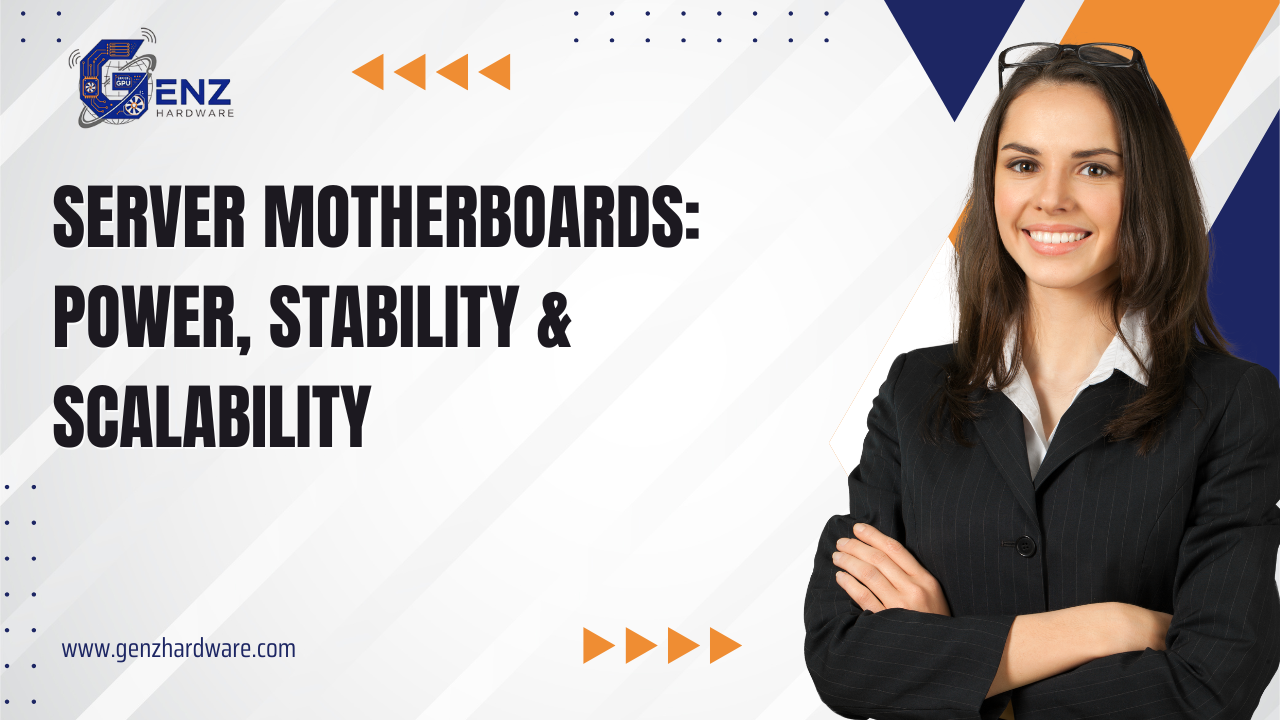
Server Motherboards: The Foundation of Powerful and Reliable Server Performance
At the heart of every high-performance server lies the server motherboard — a specialized circuit board designed to support enterprise-grade reliability, scalability, and continuous operation. Unlike standard desktop motherboards, server motherboards are engineered for heavy workloads, multi-processor configurations, and long-term stability, making them the backbone of modern data centers and business IT environments.
What Is a Server Motherboard?
A server motherboard is a mainboard designed specifically for server environments. It connects and coordinates all the server’s key components — including CPUs, memory, storage controllers, and expansion cards — while ensuring consistent uptime and efficient data processing.
Key Features of Server Motherboards:
-
Multi-Processor Support: Many server boards support dual or even quad CPUs for increased processing power.
-
ECC Memory Compatibility: Error-Correcting Code (ECC) RAM detects and corrects memory errors, ensuring data integrity.
-
Advanced Chipsets: Optimized for heavy workloads, virtualization, and high-speed networking.
-
High Memory Capacity: Supports large amounts of RAM for complex applications and databases.
-
Multiple Expansion Slots: PCIe and M.2 slots for RAID, network, and GPU cards.
-
Integrated Management Tools: Features like IPMI for remote monitoring and maintenance.
-
Redundant Power Support: Ensures uninterrupted performance in mission-critical environments.
Why Server Motherboards Matter:
-
Reliability: Designed for 24/7 operation under intense workloads.
-
Scalability: Allows easy upgrades and expansion for growing business needs.
-
Performance: Optimized for high-speed data transfer and multitasking.
-
Data Protection: ECC memory and RAID support prevent data loss and corruption.
-
Remote Management: IPMI and out-of-band management simplify IT administration.
Applications of Server Motherboards:
-
Data Centers: For virtualization, web hosting, and cloud storage.
-
Enterprise Servers: To handle business applications and databases.
-
Workstations: For tasks like rendering, AI modeling, and simulations.
-
Small & Medium Businesses: Affordable yet powerful backbone for local servers.
Choosing the Right Server Motherboard:
When selecting a motherboard, consider:
-
Processor compatibility (Intel Xeon or AMD EPYC)
-
Supported memory type and capacity
-
Expansion and connectivity options
-
Form factor (E-ATX, ATX, proprietary rackmount)
-
Remote management features
Conclusion:
A server motherboard is the foundation of your server’s reliability and performance. By choosing the right one, you ensure your system runs smoothly, handles heavy workloads efficiently, and remains stable 24/7 — powering your business with confidence.








